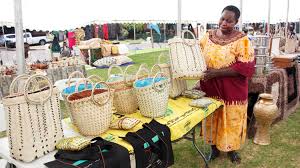Anesu Pedzisayi
Zimbabwe joins the rest of the world in celebrating International Women’s month that falls in March. This year the celebrations are running under the theme, #BalanceforBetter. International Women’s Day is held to celebrate women’s achievements throughout history and across nations.
In his solidarity message, President Emmerson Mnangagwa on Twitter said “International Women’s Day, we celebrate the strong empowered Zimbabwean women who contribute so much to our nation. We will continue to work towards full equality and further empowerment for girls and women in the new Zimbabwe.”
President Mnangagwa has been consistent on his position towards women empowerment and how they should be appreciated and valued in modern day society. He has also been on record saying that women cannot be ignored in the socio-economic and political spheres of our country.
It is commendable that in President Mnangagwa’s Government, women have been rewarded for their competence and hard work. Of inspiration is the noticeable number of women in Cabinet, key being the Minister of Defence and War Veterans, Oppah Muchinguri- Kashiri, who holds one of the key Ministries in the country. This has proven to be evidence that women can hold powerful positions that are influential in the country.
Research shows that there are a number of reasons why women have preferred to shy away from active political participation. Of significance is that, women are constantly being asked to prove themselves and their contribution to national development, contrary to their male counterparts.
There have been significant challenges that women have faced when making inroads in political and economic platforms. Women are asked if they qualify to hold positions, yet no one asks men if they are qualified for a position. Women are also objectified and seen as sex objects, their contributions are not viewed in any other way than that, forcing many women to stay away.
Zimbabwe can be regarded as one of the many countries, especially in Africa, where participation of women is largely found in the academia sector but less of them are involved in politics. Despite that women constitute over 52 percent of the population; their involvement in politics is mired by political abuse, inappropriate attention, lack of access to resources, trying to balance work, household and political activities amongst other underlying circumstances.
In the political arena, women are victimised and denigrated. A standing example has been of the MDC Party that has consistently and continuously denigrated women. Recently, MDC Legislator Job Sikhala attacked one woman suggesting that she was ‘too unattractive to be abused’ by any man. The comment was not only uncalled for; but also out of context and denigrating to the core. This is not the first time that MDC leadership has shown disrespect for women, as there has been rampant belittling and criticism of women by the opposition party.
During the International Women’s Day celebrations, it is important that women are encouraged to be active, socially, economically and politically so that they also contribute to their own growth and ultimately, the growth of the nation. Women empowerment is all about travelling in the path towards gender equality, poverty eradication and inclusive economic growth.
It is also the opportune time for women to be reminded of financial opportunities they can access through Empowerment Bank. These resources can help them finance their projects for self-empowerment. Women may also be reminded that Government, through the Ministry of Women’s Affairs, Small and Medium Enterprises, offers them access to information they may require towards empowerment initiatives.
Denigration and abuse of women should be condemned and dismissed with utter contempt it deserves. For Zimbabwe to fully realise economic growth, the contributions of women cannot be side-lined. In President Mnangagwa’s words, Zimbabwe “ratified the convention on the elimination of all forms of discrimination against women and signed the SADC declaration on gender and development as well as SADC protocol on gender equality.” The empowerment of women should be facilitated in all spheres of life.




